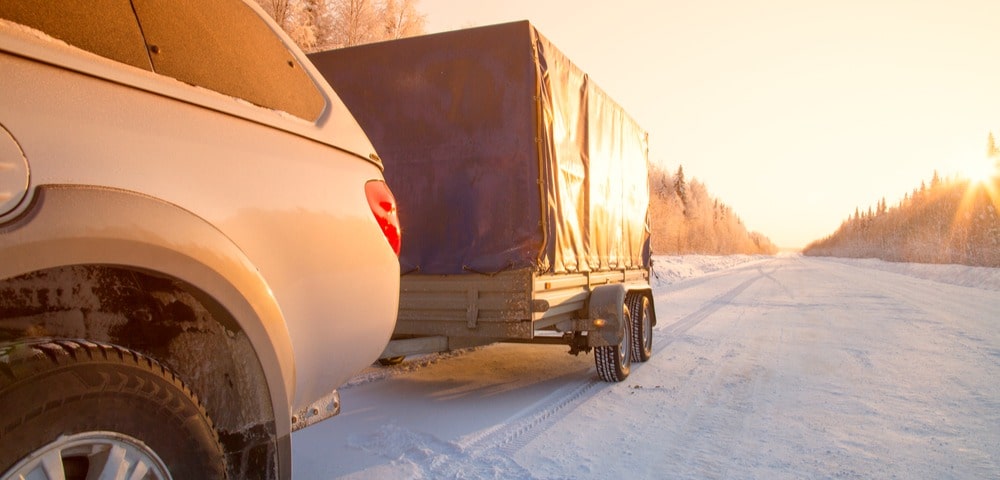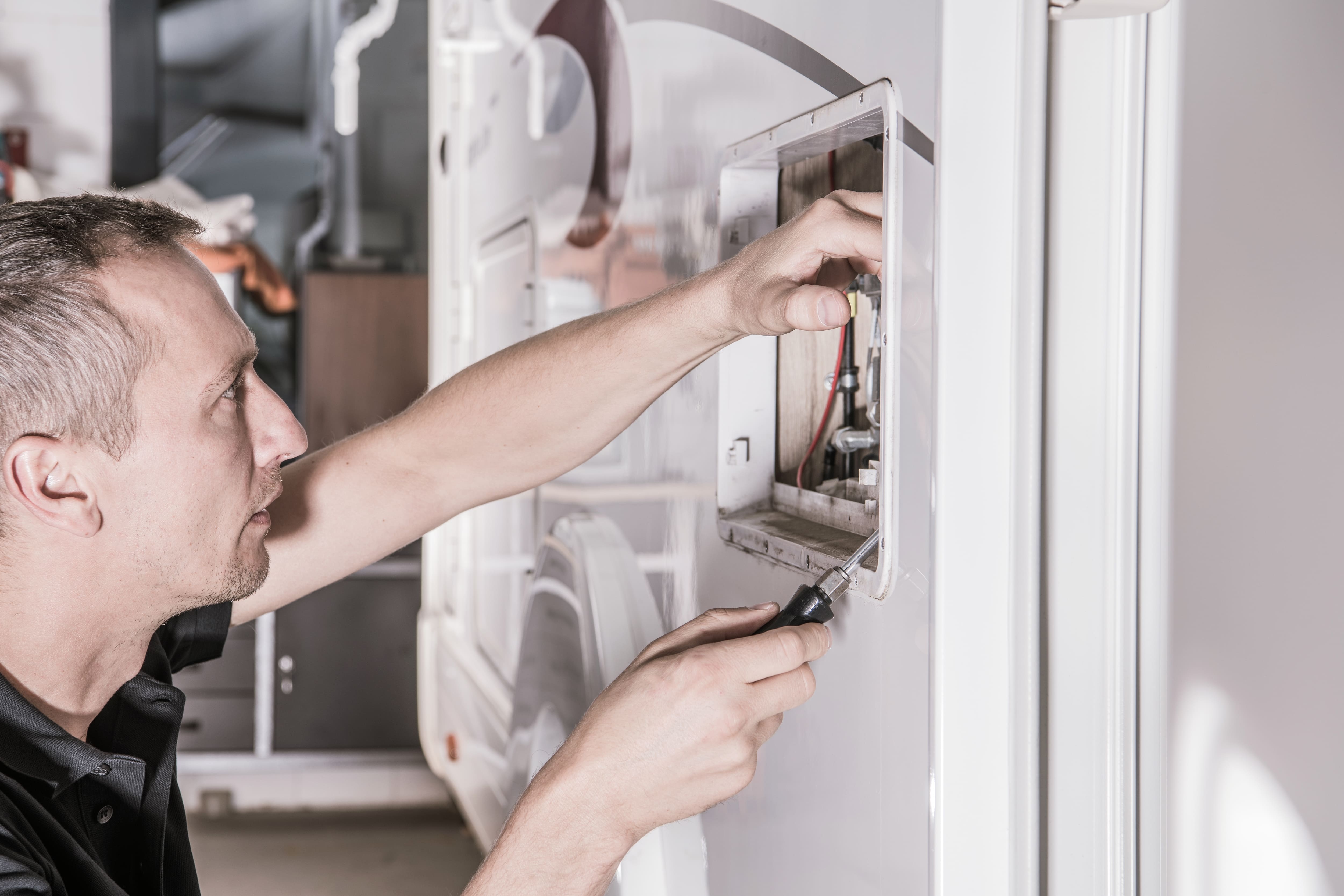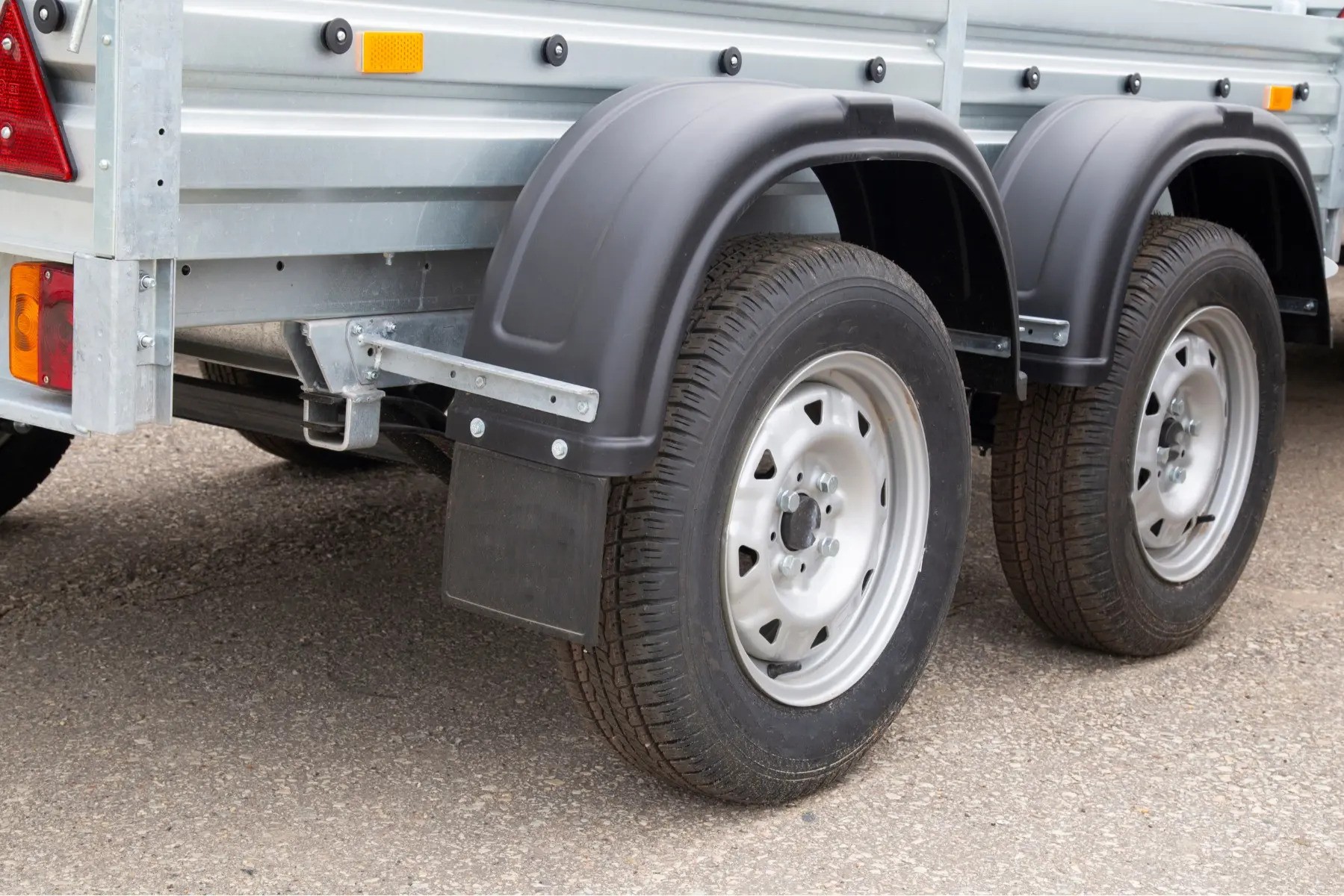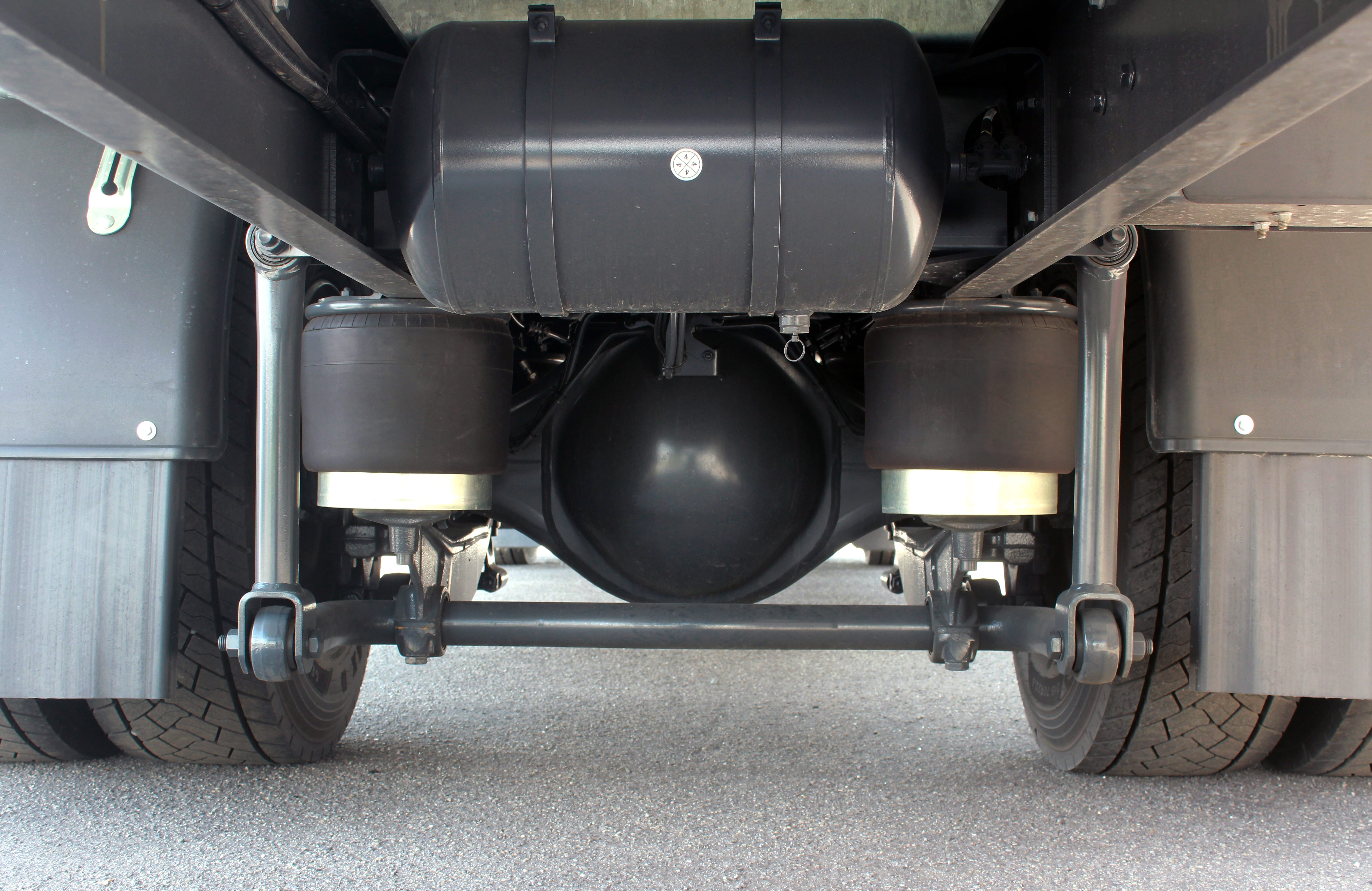With the winter weather taking a firm grip over our country it is hard important we take a moment to think about how to drive and tow safely in challenging conditions. The weather can have a big impact on how your vehicle performs on the road and reacts to your inputs - towing a trailer will only exaggerate the impact on the performance of your vehicle. So, join us today as we take a look at some safe driving and towing techniques you can adopt this winter.
Stopping Distance
Stopping distance is one of the most crucial factors to consider when the weather begins to deteriorate. Stopping distance is constantly being affected as the surface of the road changes with the weather - this can be due to anything from light rain or mist, to heavy snow and ice. You should consider the stopping distance at all times of the year, however, the winter months bring with them more extreme conditions which can cause dramatic changes to how your vehicle comes to a halt.
When towing a trailer you will already know your stopping distance is increased. This is due to the extra weight the trailer brings with it which will increase the overall mass of your vehicle. This increase in mass leads to more momentum, resulting in a larger distance taken for your vehicle to stop. This is why it is especially important to consider the weather when you have a trailer in tow.
In normal dry weather conditions, the Highway Code states that the following distance behind another vehicle should be at least two seconds. As the road surface becomes wet due to rain, this following distance doubles to four seconds. And as weather conditions deteriorate further and become snowy or icy stopping becomes even harder so the following distance takes a massive leap up to ten seconds.
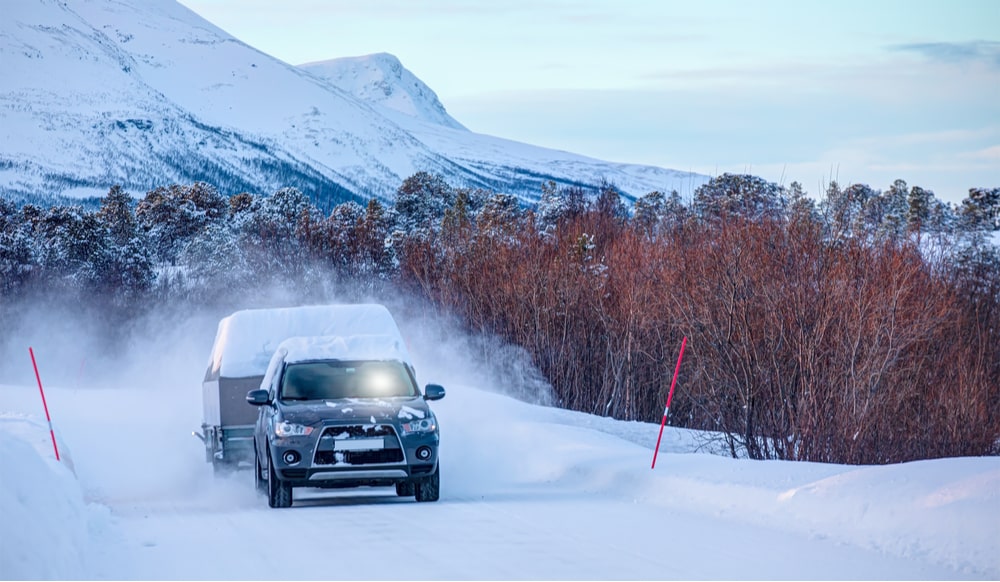
Smooth Driving
Smooth driving is safe driving. This is the underlying key to staying safe while on the road during bad weather conditions. Vehicles and trailers will tend to become unstable if there are sharp driving inputs applied. During a dangerous situation, it is human nature to automatically apply the brakes, however, this tends to further unsettle the vehicle and may lead to it becoming uncontrollable.
You should always try to adopt smooth driving techniques when you have a trailer in tow. Even in perfect weather conditions, a trailer that experiences sharp inputs can cause a vehicle to start to snake. When the road surface is slippery, snaking can become deadly, so avoiding any possible causes of this is vital.
On a snowy or icy road keep your speed low, and look as far ahead as possible to spot any dangers or obstructions which may affect your driving. Anticipating turns and where you need to stop helps massively with achieving a smooth and controlled driving experience. Be aware of any lumps of snow and ice in the road, and take extra caution when avoiding this type of obstacle (if you are unable to avoid lumps of snow and ice keep your speed to an absolute minimum as driving over these may unsettle your vehicle or trailer).
Correctly Prepare Your Vehicle
We have all experienced fogged windows and mirrors on a cold and frosty morning. Some people choose to start their journey without waiting for the glass on their vehicle to clear completely. This can be highly dangerous as your views are significantly obstructed. Allow for plenty of time to start your vehicle and clear your windows before your journey begins.
If your window is frosted over, using an ice scraper can help clear it faster, keeps your hands ice-free, and means you no longer need to use your credit card!
Using wet weather or snow tyres can help improve the grip your tyres get on wet and slippery roads. These tyres are designed to dissipate surface water and reduce the risk of aquaplaning, However, you will still need to drive with caution even if these tyres are installed on your vehicle.
When you drive in bad weather conditions it is even more vital to go through your vehicle checklist before you leave on any journey, let's take a look at what you should be checking:
- Fuel - Check you have enough fuel to make the trip
- Tyres - Are your tyres correctly inflated with enough tread?
- Lights - Are all of your lights functioning correctly?
- Oil/Water - Have you checked the oil level in your vehicle and ensure there is enough coolant and washer fluid?
- Electrics - Are all of the electrics on your vehicle working properly?
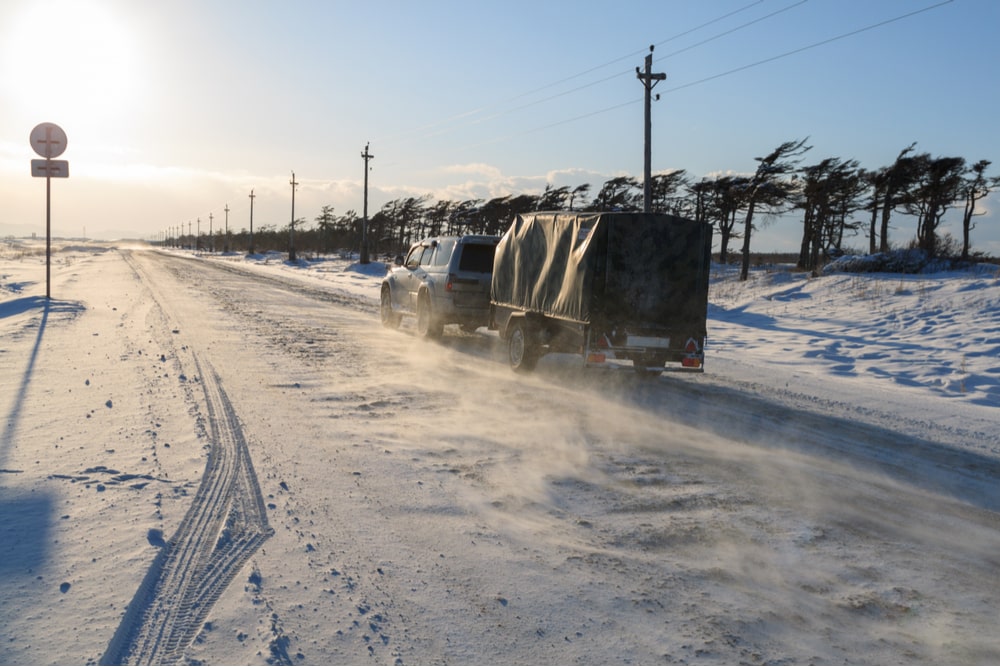
Driving Techniques
When driving in bad road conditions, especially snow and ice, the driving techniques you practise can make a big difference. If you find yourself stuck in snow or on an icy road using your gearbox to your advantage can be a big help. First gear transmits very sharp inputs to the driving wheels and when combined with a slippery road surface this can lead to an increased chance of the wheels slipping and losing their driving force. Pulling away in a higher gear (second or third) will help cushion the driving force of the engine and will give you more chance of gripping the road.
Keeping a constant (low) speed while driving will also help avoid the risk of skidding when it comes to cornering. The more inputs a tyre experiences, the more likely it is to skid - that is to say, if you were to try and accelerate and turn at the same time the tyre is far more likely to lose traction than if you are just doing one or the other. Try to do all of the accelerating and breaking before taking any turns, and maintain a constant speed throughout corners.
Stay Safe Out There
Driving in the winter months can be dangerous, so only get behind the wheel if you feel fit to do so. Check your vehicle regularly to ensure it is in a good enough state to be on the road - remember a road-legal vehicle will be able to pass an MOT at any given time. And finally, take your time. A huge number of accidents in bad weather could have been avoided if drivers took more time to assess situations before acting. Make sure you always feel comfortable where you are driving and in the conditions you find yourself in, if at any point you feel unsafe pull over to the side of the road and wait for the conditions to improve or call for help. For more help on what TrailerTek can do to improve your winter towing safety get in touch with us today!


